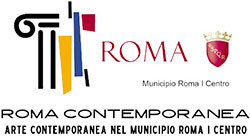On Wednesday, 1 October 2025, Fondazione Pastificio Cerere is presenting They sold us a dream then took away our sleep, a group exhibition featuring artists Veronica Bisesti, Danilo Correale, Jagoda Dobecka, and Marta Krześlak, curated by Vasco Forconi and Kasia Sobczak. The exhibition will be open to the public from Thursday, 2 October to Saturday, 22 November 2025.
The traveling project was developed in partnership with Goyki 3 Art Incubator in Sopot—host of the exhibition’s first chapter, Autumn 2024—the Italian Cultural Institute in Warsaw—host of the second chapter, Winter 2024–25—and the Polish Institute in Rome.
Do places, rituals, and times dedicated to rest, pleasure, and collective well-being still exist? Can their remnants be traced in past institutions to design and imagine new ones? As time dedicated to collective care is progressively eroded from our lives, different generations of artists have obsessively brought it back to the centre of their practices. The works on display—all existing commissions re-elaborated specifically for this group show at Fondazione Pastificio Cerere—attempt to articulate this impulse, offering multiple imaginaries of care drawn from the ruins of a recent past.
The project originated from a series of collective conversations between the artists and curators around the notions of leisure, rest, work, and pleasure. These discussions were initially inspired by the historical identity of Sopot, Poland—host of the exhibition’s first iteration—as a spa town traditionally dedicated to the care of body and mind. Building on this idea, the research focused on the parallel between two emblematic institutions from 20th-century Italian and Polish labour history: the dopolavoro—a series of public and private institutions that organised recreational and cultural activities for workers during their free time—and sanatoriums—public facilities that offered workers rest, medical treatment, and wellness therapies in the Soviet era.
From a contemporary perspective, both the dopolavoro and sanatorium represent moments within structurally secular models—post-war Italy and communist Poland—where leisure, escapism, physical, mental, and perhaps even spiritual well-being found space in collective life. The void left by the partial and progressive collapse of these structures, alongside the need to re-articulate the nostalgia associated with such an absence, served as a catalyst for the artists, who were invited to propose diverse approaches, visions, and imaginaries of care and well-being.
The exhibition title, They sold us a dream then took away our sleep, takes a phrase inscribed by artist Danilo Correale on a decommissioned office divider, an object that introduces the exhibition pathway: a poetic trace, a critical gesture against the work ethic that has dominated the last thirty years of our lives.



